Learning and knowledge sharing are fundamental to the LHSS Project. We invite you to search LHSS knowledge products and resources for the latest approaches, insights, and learning in the field of integrated health systems strengthening.
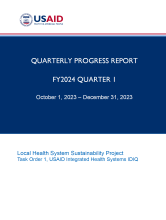
This Year 5 Quarter 1 Report (Oct-Dec 2023) was prepared for USAID and provides a progress update for all annual work plan activities.
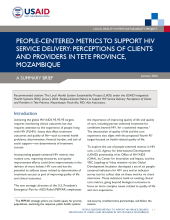
To explore the use of people-centered metrics in HIV care, a set of six people-centered indicators for HIV care and an indicator survey tool were developed to collect data on the metrics via client interviews. This brief summarizes findings and draws recommendations from an exploratory qualitative study to assess the acceptability, feasibility, integrability, and relevance of both the indicators themselves and the indicator survey tool employed to gather client data.
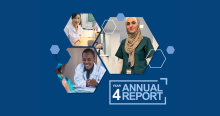
We are proud to share the LHSS Year 4 Annual Report which highlights the many achievements we celebrated with our country partners this year.
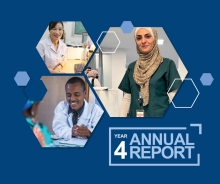
We are proud to share the LHSS Year 4 Annual Report which highlights the many achievements we celebrated with our country partners this year.
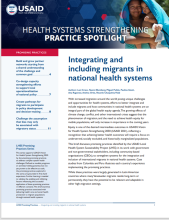
With increased migration around the world posing unique challenges and opportunities for health systems, efforts to better integrate and include migrants and host communities in national health systems are an integral part of the global health equity agenda.
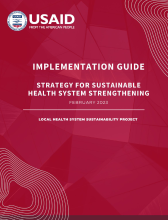
This implementation guide provides details on how project teams and local partners may implement the various approaches contained in the strategy, including tools and templates that may be adapted to country and activity contexts.
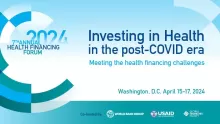
The World Bank, USAID and the Global Financing Facility (GFF), will host the 7th Annual Health Financing Forum (AHFF7) on April 15 to 17, 2024, on the sidelines of the 2024 World Bank/IMF spring meetings.
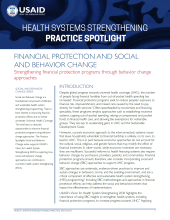
This brief describes opportunities to improve financial protection programs using behavior change approaches. The Practice Spotlights Social and Behavior Change series supports USAID’s Vision for Health System Strengthening 2030 by exploring how social and behavior change approaches can contribute to countries’ health system strengthening efforts.
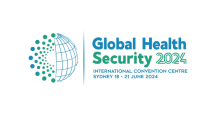
LHSS will present work at the Global Health Security Conference which will be held from June 18 to June 21, 2024, at ICC Sydney.
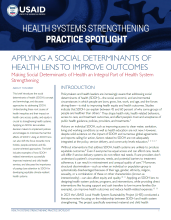
This brief introduces the social determinants of health (SDOH) concept and terminology, and discusses approaches to addressing SDOH. Understanding these root causes of health inequities and their impact on health care access, quality, and equity is crucial to strengthening health systems.

The 8th Global Symposium on Health Systems Research (HSR 2024) will be held in Nagasaki, Japan, from November 18 to 22, 2024.
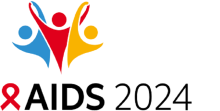
AIDS 2024 (July 22-26, 2024) will convene thousands of people living with, affected by and working on HIV to share lessons learnt from the HIV response over the past 40 years.
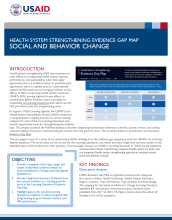
This two-pager focuses on USAID’s Learning Question 6, "What are key behavioral outcomes that indicate a functioning, integrated health system? In what ways can integrated health system strengthening approaches explicitly include social and behavior change?"
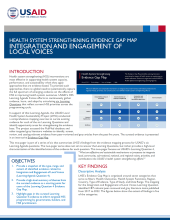
This two-pager focuses on USAID’s Learning Question 4, “What are effective and sustainable mechanisms or processes to integrate local, community, sub-national, national, and regional voices, priorities, and contributions into USAID’s health system strengthening efforts?”
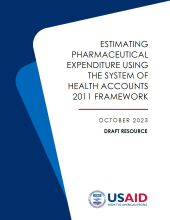
LHSS partnered with colleagues working as part of the USAID MTaPS project to document a practical approach that countries can use to track pharmaceutical expenditure (PE) using the System of Health Accounts (SHA) 2011 framework. This resource contributes to efforts by the World Health Organization to develop global guidance on tracking of PE.
